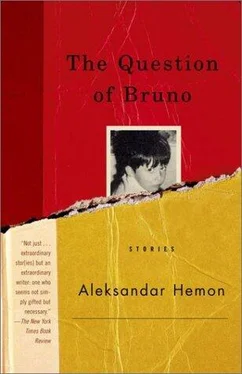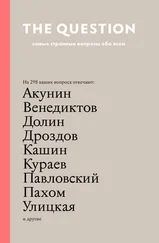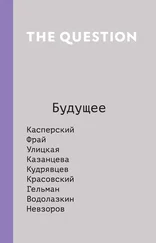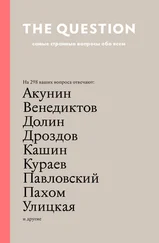From his journeys to the Soviet Union, my father would bring me dull Soviet toys which all had a sour, oily smell: gray toy car (Volga) that was sticky when touched and produced a hideous high-pitch whining sound when (seldom) driven; dun plastic train station, meant for my long abandoned train; military olive-green gun that ejected little (vomit-orange) plastic balls, instantly banned and then consequently disposed of by my mother; plethora of books about the victorious Red Army, 11which I couldn’t read since they were in Russian, but I liked the pictures (plain peasant faces, scared stiff of the Army photographer’s camera) of the heroes who neutralized a German machine gun by throwing themselves at the barrel or jumped into a terrified German trench, with a cluster of hand grenades attached to their chests. But at the beginning of 1975, after a few cold nights at the airport, he brought me something beyond words: a portable telegraphic system. It was in a gray (naturally) box with a thin booklet, which had a smiling black-and-white boy with gigantic earphones on his head (but no earphones in the box). My father unpacked it: two buzzer-keys and a coil of shining copper wire. Then he put one key in our dining room and the other one in the bedroom (buzz-buzzbuzz-buzz) and the electric current (he said) carrying a Morse-encoded message 12went over the bedroom floor, passed my father’s curled socks (he’d take off his socks first thing when he got back home), went through the kitchen, speedily crawling by my mother’s feet (going to the bathroom to vomit again), then diving under the carpet (lest someone, most likely, I, stumble over and fall onto the glass-top table to be “cut in pieces”) of the dining room and then reached the key (buzz-buzzbuzz-buzz) in front of the amazed me. I could not decode the message, so I could not reply, which made me eager to learn Morse code. My father knew Morse code very well (which fueled my suspicions) so he decided to train me. He’d tap messages at the dinner table (my mother digging a crater in the mashed potatoes and rolling her eyes) and I’d try to decode them, forgetting to chew and swallow, the mashed potatoes becoming liquid in my mouth. He’d tap “hurry up” at the bathroom door, where I was getting carried away over a book. I was getting better, I even sent him a couple of simple messages (“want dog”), but my father sustained his teaching patience only for a week or two, then he was busy, then he was off to the Soviet Union again. I continued practicing Morse code for a while, but then I abandoned practicing because it was boring to send messages into a void. Several times I played a whole spy game: I’d sneak into my parents’ bedroom (my mother innocuously watching The Sound of Music) , photograph the stuff in the top drawer, the unlocked one, of my father’s desk (mainly bills) with a matchbox (a real matchbox), then I would crawl out of the bedroom, behind the back of my unsuspecting dozing mother, and go to my secret shelter under the glass-top table, and send haplessly coded messages back to the bedroom, imagining that they meant something, picturing someone at the other end of the copper wire. It was all over when I shattered the glass top, almost beheading myself while practicing seeing (seeing clearly, I should say) in the dark — a skill necessary, I believed, for any spy, let alone a great one. My mother terminated the telegraph line and I was left to send messages by telepathy (a brief and only partly successful attempt). When my father came back from the Soviet Union in April, he brought me a too-light, atrociously deformed, pigskin soccer ball.
When my mother went to the hospital to give birth to my little sister Hanna (July 4, 1975–January 31, 1985), my father was away, again. This time he was in Baku, the Soviet Republic of Azerbaijan (whence, in August, he brought me four tin oil-drill towers and a box of little pipes that would have formed a pipeline, had they ever been connected). I was left home alone for lengthy periods of time and was watched over constantly, I believed, by Comrade Tito himself. It was because Branko Vukelic had told me that one shouldn’t use Tito’s name in vain, for Comrade Tito had TV monitors at his palace in Belgrade, at which he could see every single resident of Yugoslavia, at any given moment of their lives. 13“Now,” Branko Vukelic said, “if you use Tito’s name to swear and then you lie, or if you use Tito’s name to curse, he can see you. And if he sees you, he may decide to die and punish us all.” I was very careful thereafter not to swear, lest I be guilty of Comrade Tito’s (or someone else’s, for that matter) death. It was soothing to know, however, that I was being monitored, when I was all by myself, that if someone came to abduct me (the police or the devil himself) it would have been seen and I would have been doubtless retrieved from the sneaky villains. It also meant that I had to wash my hands after using the bathroom, couldn’t pick my nose and stick the snot to the underside of the chair, nor could I belch like a hog. I tried to locate the cameras that must have been transmitting images from our home to Tito’s residence. While Mother and Father were away, I looked into vases; I looked behind the pictures on the wall, breaking the one with them in Vienna, on their honeymoon (for which I was ruthlessly beaten when my mother came back from the hospital); I looked into lamps and light switches; I looked everywhere and the only place I could figure out as a camera location was the TV set (model Futura). It was a perfectly logical location, for, from the position of the TV, almost every nook of our home was visible — in fact, everything in the apartment except Mother and Father’s bedroom. When I wanted to be alone, I’d go to their bedroom and lie in their bed, smelling the ethereal residues of their absent bodies, watching their wedding picture on the opposite wall (they’re smiling, with a circular lamp behind them acting the moon), still suspecting that there was Tito’s camera behind their happiness.

At the time of my poor sister’s birth, I was still obsessively entertaining the idea that my father was a spy, but I hadn’t been able to find any tangible evidence. My suspicions had swollen because of my father’s long phone conferences in Russian with somebody who had never been identified; because of the letters (in colorful envelopes embellished with eventful stamps) coming from Moscow, Vladivostok, 14Stockholm, New York; because of his mysterious smiles, when he would be watching the news, as if he knew more than the bland announcers; because of his comments about the politicians: “He won’t last long,” or “He’s dead all right”; because of his secluding himself behind the bedroom door and never letting anyone see what he was doing there.
When Tito went to Cuba (a TV image of Tito and Castro hugging, smiles stowed with false teeth: Tito in his white, elaborate field-marshal uniform, Castro in his olive-gray sergeant’s uniform plus the immortal curly beard) I reckoned that I wasn’t going to be watched or, even if I was, it would be done by some of his lower officials who wouldn’t dwell over me as caringly as Tito himself would. Thus I decided to venture into going through my father’s drawers, closets, suits, and suitcases, all conveniently located in the bedroom, out of the reach of Tito’s men. I even unplugged the already turned-off TV and put a thick (Turkmenistan) blanket over it. I took down, carefully, the wedding picture and rolled down the shades. First I went through (two) suitcases, finding (two) hotel brochures: the Lux 15in Moscow and a Holiday Inn in Vienna, with pictures of reception desks, desolate rooms, and swimming pools. The Lux Hotel brochure had a smiling Russian beauty (silky braids, rose cheeks, big eyes, etc.) on the front page. The Holiday Inn brochure had a picture of a spacious hall, with an immense lantern, dissolved into glittering crystal tears, hanging from the top of the picture. I went through the inside suitcase pockets, finding business cards (in various languages, in sundry alphabets); finding unintelligible notes on napkins and exhausted railway tickets; finding a lighter (a miniature camera? No!) and a pack of Soviet cigarettes (Sputnik, with an ostentatious picture of an ascending spaceship on the box); finding mysterious rubber objects (condoms, I was to find out, a couple of years later).
Читать дальше













